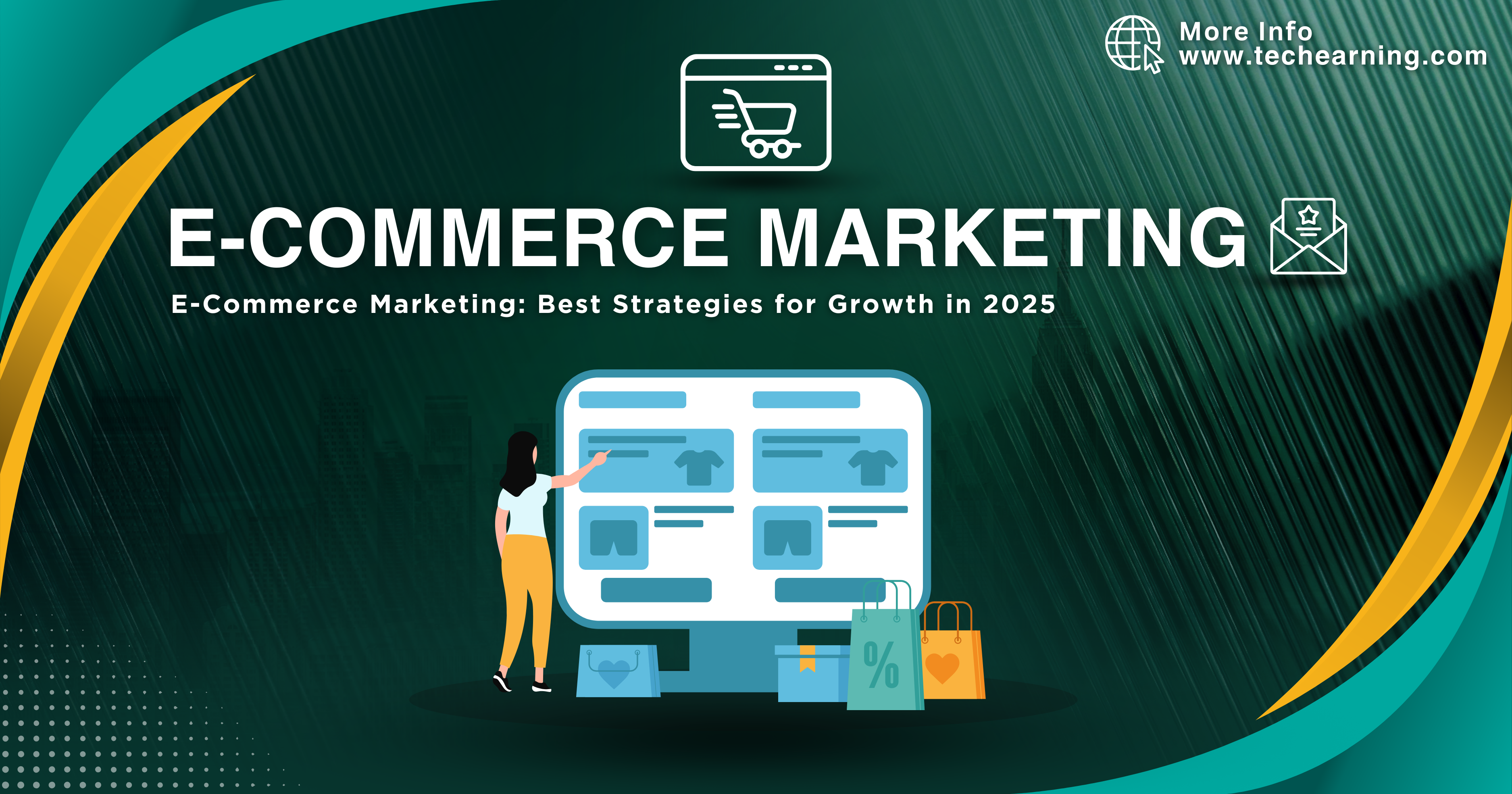
E-Commerce Marketing: Best Strategies for Growth in 2025
What is E-Commerce Marketing?
E-Commerce Marketing refers to the techniques used to drive traffic to an online store, convert visitors into customers, and retain them for future purchases. With the rise of digital transformation, businesses must implement result-oriented strategies to stay competitive.
Why E-Commerce Marketing is Essential in 2025?
The e-commerce industry is evolving rapidly, and businesses that fail to adapt will struggle to survive. A well-planned marketing strategy ensures higher visibility, increased conversions, and customer loyalty. Below are some essential strategies for effective E-Commerce Marketing.
Top 12 Effective E-Commerce Marketing Strategies
Search Engine Optimization (SEO) for E-Commerce
SEO plays a crucial role in E-Commerce Marketing. Optimize product pages, use relevant keywords, and improve site speed to enhance search rankings.
Pay-Per-Click Advertising (PPC)
Running targeted PPC campaigns through Google Ads and social media platforms helps drive instant traffic and increases sales.
Social Media Marketing
Platforms like Facebook, Instagram, and Pinterest are great for promoting e-commerce businesses. Engaging content, paid ads, and influencer marketing can significantly boost brand awareness.
Email Marketing Automation
Automated email sequences for abandoned carts, product recommendations, and customer follow-ups can increase conversion rates and customer retention.
Content Marketing for E-Commerce
Blogging, video marketing, and informative guides help educate customers and improve search engine visibility.
Retargeting & Remarketing Strategies
Using Google Ads and Facebook Pixel to retarget visitors who did not complete a purchase helps increase sales.
Mobile Optimization
With increasing mobile shopping trends, ensuring a responsive and fast-loading website is crucial for success.
Customer Service & Reviews
Excellent customer service and positive reviews play a vital role in building trust and increasing sales. Quick responses to inquiries and addressing negative feedback professionally can enhance brand credibility.
Influencer & Affiliate Marketing
Collaborating with influencers and affiliates can expand reach and drive quality traffic to e-commerce stores. Authentic product reviews and promotions help build credibility and trust.
Personalization & AI-Powered Recommendations
AI-driven marketing allows businesses to create personalized shopping experiences, product recommendations, and dynamic pricing models based on customer behavior and preferences.
Voice Search Optimization
With the rise of voice assistants like Alexa, Siri, and Google Assistant, optimizing product pages and content for voice search queries can improve rankings and enhance user experience.
Subscription & Loyalty Programs
Implementing loyalty programs and subscription-based models can increase customer retention and lifetime value. Exclusive discounts and personalized offers encourage repeat purchases.
The Role of AI in E-Commerce Marketing
Artificial Intelligence is revolutionizing E-Commerce Marketing. AI-powered chatbots, personalized recommendations, and automated customer support improve user experience and sales. Machine learning helps businesses analyze customer behavior and predict trends to optimize marketing efforts.
Common Mistakes in E-Commerce Marketing
- Ignoring SEO best practices
- Poor mobile experience
- Lack of personalized marketing
- Inadequate product descriptions
- Slow website speed
- Overlooking customer feedback and service quality
- Ignoring influencer collaborations
- Failing to optimize for voice search
- Not utilizing remarketing strategies effectively
How to Measure E-Commerce Marketing Success?
To ensure the effectiveness of your E-Commerce Marketing strategies, track key performance indicators (KPIs) such as:
- Website traffic and bounce rate
- Conversion rate and average order value
- Customer acquisition cost (CAC)
- Return on ad spend (ROAS)
- Email open and click-through rates
- Social media engagement and follower growth
- Customer retention rate and lifetime value (CLV)
- Revenue generated from remarketing campaigns
- Growth in subscribers for loyalty programs
The Future of E-Commerce Marketing
As technology continues to advance, businesses must stay updated with the latest trends in e-commerce. Voice search, augmented reality (AR) shopping experiences, and blockchain-based secure transactions are some of the innovations that will shape the future of online retail. Brands that adapt to these changes will remain ahead in the competitive market.
Additionally, personalization will play an even greater role in user experience. AI-driven marketing automation and predictive analytics will allow businesses to deliver hyper-personalized content, offers, and recommendations in real-time. Furthermore, sustainability and ethical sourcing will become deciding factors for modern consumers, pushing brands to adopt greener practices.
Conclusion
E-Commerce Marketing in 2025 demands a well-structured strategy that integrates SEO, PPC, content marketing, AI-driven automation, influencer collaborations, and exceptional customer service. By implementing these tactics, businesses can achieve higher visibility, increased sales, and long-term success.
To stay ahead of the competition, brands must embrace new trends, focus on personalization, and leverage AI-driven tools to enhance customer experience. With the right approach, businesses can maximize their return on investment and establish themselves as industry leaders.
Visit our Home Page to explore more about digital marketing and stay updated with the latest trends!